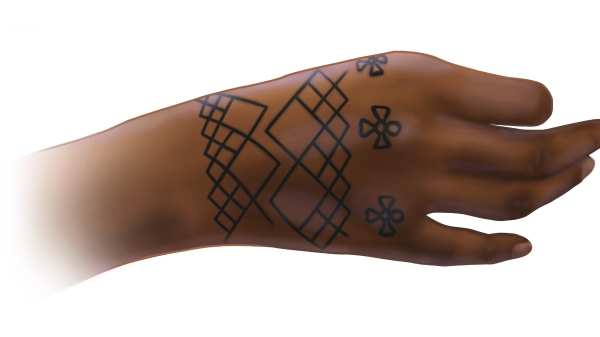ASU top recipient of prestigious Air Force Young Investigator awards

(From left) ASU assistant professors Ximin He, Nicholas Stephanopoulos and Yu Yao have been awarded grants through the U.S. Air Force’s Young Investigator Research Program to advance their research.
Arizona State University’s innovation winning streak has continued among its next generation of talented faculty. Three ASU researchers — more than any other university in the nation — have been awarded part of $20.6 million in total grants funded through the U.S. Air Force’s Young Investigator Research Program (YIP).
ASU assistant professors Ximin He, Nicholas Stephanopoulos and Yu Yao will use the three-year YIP awards to pursue groundbreaking discoveries and develop new building blocks and high-performance devices for nanotechnology applications.
“Our faculty’s innovative approaches to grand challenges have placed them among the top tier of researchers nationally,” said Sethuraman “Panch” Panchanathan, senior vice president for Knowledge Enterprise Development at ASU. “The technologies and techniques they create could spark entirely new solutions in biomedicine and energy.”
Ximin He and Nick Stephanopoulos are new faculty under ASU Biodesign Institute’s Center for Molecular Design and Biomimetics, directed by Hao Yan, a past Air Force YIP recipient and recognized leader in bio-nanotechnology. Yan uses DNA and other basic building blocks to build novel nanotechnology structures at a scale 1,000 times smaller than the width of a human hair.
“The goal of the Center for Molecular Design and Biomimetics is to use nature’s design rules as an inspiration in advancing biomedical, energy and electronics innovation through self-assembling molecules to create intelligent materials for better component control and for synthesis into higher-order systems, said Yan, who also holds the Milton Glick Chair in Chemistry and Biochemistry. “The AFOSR (Air Force Office of Scientific Research) YIP award will facilitate both Ximin and Nick’s research agenda in this direction, and is a significant recognition of their creativity and track record at the early stage of their careers.”
Yu Yao is a new faculty member in the Ira A. Fulton Schools of Engineering, in the School of Electrical, Computer and Energy Engineering, and also a member of the Center for Photonics Innovation. Her current research focuses on developing nanoscale devices with unprecedented performance and unique properties based in part on semiconductor technology and emerging materials.
“Yu is very innovative and has many outstanding ideas,” said Yong-Hang Zhang, director of the Center for Photonics Innovation and the associate dean of research at the Fulton Schools of Engineering. “We are so pleased that we were able to recruit her to ASU. Should her proposed research in this particular program be successful, new infrared lasers will be available for chemical sensing, environmental monitoring and even medical applications.”
During her doctoral studies at Princeton, she developed novel designs for chemical sensing in the environment, a technology called mid-infrared quantum cascade lasers. More recently, she successfully demonstrated high-speed infrared detectors and modulators based on optical nano-antennas and graphene during her postdoctoral work at Harvard.
The individual project awards are:
- Ximin He, Biodesign Institute’s Center for Molecular Design and Biomimetics, assistant professor of Materials Science and Engineering in the School for Engineering of Matter, Transport and Energy, Ira A. Fulton Schools of Engineering, “Bioinspired Artificial Homeostatic Multifunctional Material Microsystems (AHM3) based on Self-sustaining Autonomic Adaptive Structures.”
- Nicholas Stephanopoulos, Biodesign Institute’s Center for Molecular Design and Biomimetics, assistant professor, School of Molecular Sciences, “Peptide-DNA Tiles as Building Blocks for Complex Nanostructures.”
- Yu Yao, Ira A. Fulton Schools of Engineering, School of Electrical, Computer and Energy Engineering, “Mid-Infrared Laser Frequency Comb Generation Based on Ultrafast All-Optical Graphene-metasurface Modulators.”
The Air Force’s YIP program is open to scientists and engineers at research institutions across the United States who received PhD or equivalent degrees in the past five years and who show exceptional ability and promise for conducting basic research.
The YIP program fosters creative basic research in science and engineering, enhance early career development of outstanding young investigators, and increase opportunities for the young investigators to recognize the Air Force mission and the related challenges in science and engineering.
ASU received three awards out of 56 scientists and engineers from 41 research institutions and small businesses. AFOSR received more than 265 proposals in response to the AFOSR YIP broad agency announcement solicitation in Engineering and Information Science and Physical and Biological Science research areas. These vital areas of research include: Engineering and Complex Systems, Information and Networks, Physical Sciences and Biological and Chemical Sciences.
More Science and technology

ASU researchers shed light on ancient tattoos in the Nile Valley
Long after an archaeological excavation, discoveries can still be made. One such example of this is newly discovered tattoos from…

ASU’s LEAPS lab marks a decade of energy impact
Nathan Johnson doesn't mince words when it comes to Earth's energy requirements.“The world needs every electron it can get to…

Smarter tools for peering into the microscopic world
The microscopic organisms that fill our bodies, soils, oceans and atmosphere play essential roles in human health and the planet’…